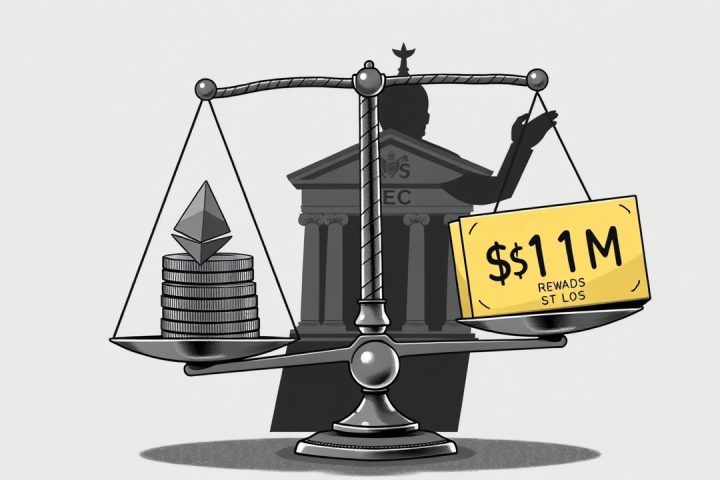Concerns About Organized Crime and Cryptocurrency
A new report from the United Nations Office on Drugs and Crime (UNODC) has raised significant concerns regarding the evolving landscape of organized crime globally, particularly as it relates to cryptocurrency. The study indicates that transnational criminal organizations, particularly those based in East and Southeast Asia, are increasingly using illegal crypto mining operations as sophisticated mechanisms for laundering vast sums of illicit funds.
Highlights of the UNODC Report
The UNODC’s report, titled “Inflection Point: Global Implications of Scam Centres, Underground Banking and Illicit Online Marketplaces in Southeast Asia,” highlights that these gangs are not only perpetrating scams and human trafficking but are also establishing comprehensive ecosystems involving unregulated cryptocurrency exchanges, encrypted communication platforms, and stablecoins to facilitate extensive fraud.
Benedikt Hofmann, the Acting Regional Representative for UNODC, expressed grave concerns in a statement, likening the spread of these crime syndicates to a malignant growth that evades local law enforcement efforts. “Authorities address the issue in one area, but these groups simply move elsewhere,” Hofmann noted.
Case Study: Huione Guarantee
One of the standout entities identified in the report is Huione Guarantee, recently rebranded as Haowang. Operating out of Cambodia, this platform has attracted approximately 970,000 users and has handled a staggering $24 billion in cryptocurrency transactions since 2021. As reported, Huione serves as a significant hub for laundering services, fraudulent identities, and scam operations, with many of its offerings currently available on Telegram due to increased scrutiny from law enforcement.
Huione has expanded its offerings to include its own stablecoin and avenues for online gambling, crafted to evade regulatory oversight. This development indicates a troubling trend in which such platforms are increasingly targeting less regulated regions like Nigeria, Namibia, and Angola, widening their scope of operations globally.
Attraction of Crypto Mining
Crypto mining has become particularly attractive to these criminal groups predominantly due to its escape from stringent anti-money-laundering regulations. Criminal networks often resort to stealing power to sustain these operations, resulting in the covert generation of what appear to be legitimate digital assets at minimal operational cost.
For example, in Libya, such activities have allegedly led to widespread power outages as officials investigate the extent of these illegal operations.
Financial Impact of Crypto Fraud
These findings echo earlier warnings from a 2024 UNODC report that underscored the merging threats posed by cryptocurrency, cybercrime, and artificial intelligence across Southeast Asia. The report emphasized that organized crime rings are adeptly exploiting local vulnerabilities faster than governments can respond to the risks involved. With American citizens experiencing losses amounting to $5.6 billion due to crypto-related scams in 2023 alone, including $4.4 billion linked to schemes originating in Southeast Asia, the urgency of this matter is underscored further.
In terms of nationwide impacts, East and Southeast Asian countries logged approximately $37 billion in losses tied to cyber fraud, with much of this attributed to crypto laundering.
Recent Law Enforcement Challenges
Recent law enforcement interventions also paint a vivid picture of the challenges faced. In March, authorities in Thailand discovered illegal crypto-mining operations in abandoned buildings, which were found to have caused over $300,000 in electricity theft. In Malaysia, unearthed illicit setups continue to surface, including a clandestine mining operation linked to a house explosion earlier this year. Additionally, in Iran, unauthorized crypto mining has been scrutinized as a possible contributor to electricity shortages impacting major cities.
Call to Action
In light of these findings, the UN is urging immediate collective action, advocating for robust efforts to monitor and investigate the threats posed by crypto-based fraud, enhance legal measures for asset recovery, and foster international collaboration to facilitate timely information exchanges to combat this growing issue.

















